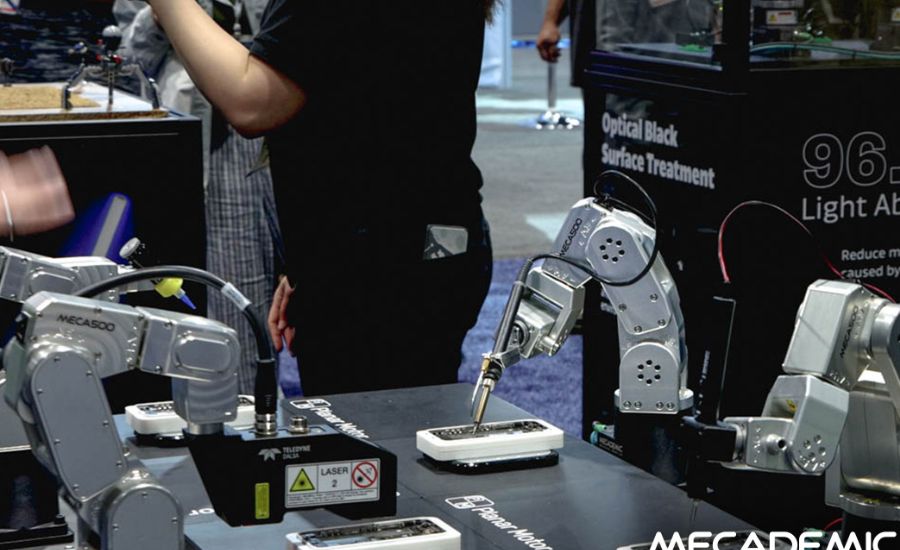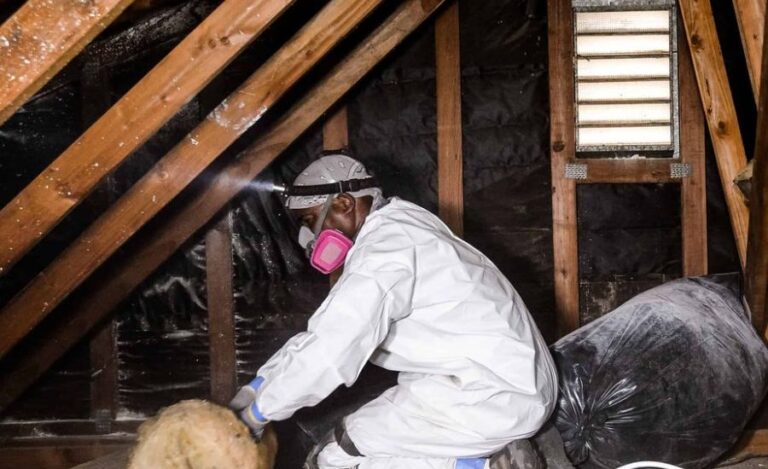Meqc Corrective Action Analyst Job Developing Corrective, & More
Introduction

In the manufacturing sector, maintaining impeccable product quality is essential for both operational success and customer satisfaction. The Manufacturing Equipment Quality Control (MEQC) Corrective Action Analyst plays a pivotal role in this pursuit by ensuring that manufacturing processes adhere to strict quality standards. This role is crucial for identifying and resolving deviations that could impact product integrity and overall production efficiency.
A MEQC Corrective Action Analyst is responsible for scrutinizing manufacturing equipment and processes to detect any inconsistencies or malfunctions that may affect quality. This involves a thorough examination of equipment performance data, production metrics, and quality reports. By pinpointing areas where standards are not being met, the analyst helps to prevent potential defects and maintain the high standards expected in modern manufacturing environments.
The position includes a number of important duties. The analyst’s primary task is to find deviations from the set quality criteria. Analysing data from several sources, including production logs, equipment performance reports, and quality control tests, is frequently required for this. After a deviation is detected, the analyst needs to investigate its underlying cause, which might include looking into equipment failures, mistakes made during procedures, or other problems.
Implementing corrective actions is another critical aspect of the role. The analyst develops and executes action plans designed to address the identified issues and prevent their recurrence.This might entail changing quality control protocols, production methods, or equipment settings. To make sure that these corrective actions are efficient and in line with corporate objectives, coordination with other departments—such as engineering, manufacturing, and quality assurance—is crucial.
Documenting all findings and actions is another duty of the MEQC Corrective Action Analyst. This paperwork tracks the efficacy of solutions put into practice and acts as a record of the quality control procedure. In addition, it guarantees adherence to industry norms and guidelines, fostering accountability and openness in the production process.
In summary, the role of a MEQC Corrective Action Analyst is integral to ensuring that manufacturing processes meet stringent quality standards. By identifying deviations, analyzing their causes, and implementing corrective measures, this professional helps maintain the high standards necessary for producing quality products. Their work not only safeguards product integrity but also enhances overall operational efficiency, making them a vital asset in the manufacturing industry.
What is a MEQC Corrective Action Analyst job?
A Manufacturing Equipment Quality Control (MEQC) Corrective Action Analyst plays a vital role in ensuring the smooth operation and quality of manufacturing processes. This professional is dedicated to identifying, analyzing, and resolving issues that arise with manufacturing equipment, aiming to maintain and enhance product quality.
The core responsibility of an MEQC Corrective Action Analyst involves scrutinizing equipment performance and identifying any deviations from established quality standards. Once a problem is detected, the analyst conducts a thorough investigation to determine the root cause. This process often includes reviewing data, assessing equipment conditions, and evaluating production practices.
Following the identification of the issue, the analyst develops and implements corrective action plans. These plans are designed to address the root cause of the problem and prevent future occurrences. Effective corrective action requires collaboration with various departments, including engineering, quality assurance, and production teams. This teamwork ensures that the solutions are practical, effective, and aligned with industry standards and regulatory requirements.
Monitoring the results of implemented corrective actions is another crucial aspect of the role. The analyst must evaluate whether the changes have resolved the initial issue and whether the manufacturing processes are now operating within acceptable quality limits. This ongoing assessment helps to ensure that the corrective measures are successful and that any new issues are promptly addressed.
Overall, the role of a MEQC Corrective Action Analyst is essential for maintaining the integrity of manufacturing operations. By addressing equipment-related issues and working collaboratively with other departments, this professional helps to ensure that products meet high-quality standards and comply with all relevant regulations. Their efforts are critical in preventing quality issues, improving manufacturing processes, and supporting the production of reliable and high-quality products.
Key Responsibilities
1. Issue Identification and Analysis

The primary role of a Manufacturing Equipment Quality Control (MEQC) Corrective Action Analyst is to identify and analyze issues related to equipment that impact product quality. This process involves a comprehensive review of production data, conducting detailed inspections, and working collaboratively with team members. By thoroughly investigating these issues, the analyst is able to pinpoint the root causes and understand the underlying factors affecting manufacturing quality.
2. Developing Corrective Action Plans
Once an issue is diagnosed, the MEQC Corrective Action Analyst crafts a detailed corrective action plan. This strategic plan outlines specific steps to address the identified problems, aiming to rectify the issue and prevent its recurrence. The plan also includes measures to ensure that similar issues do not arise in the future, thus enhancing the overall reliability of the manufacturing process.
3. Implementing Corrective Actions

The analyst’s role extends to the implementation of corrective action plans. This involves coordinating with various teams, including maintenance, engineering, and production, to execute the planned corrective measures effectively. The goal is to ensure that the actions are carried out efficiently, resulting in improved equipment performance and product quality.
4. Monitoring and Reporting
Following the implementation of corrective actions, the analyst monitors the outcomes to verify that the issues have been resolved. This involves tracking performance metrics and assessing whether the corrective measures have achieved the desired effect. The analyst also prepares comprehensive reports detailing the nature of the problem, the actions taken, and the results. These reports provide valuable insights for future reference and continuous improvement.
5. Compliance and Documentation
Adherence to industry standards and regulatory requirements is a critical aspect of the analyst’s role. The MEQC Corrective Action Analyst ensures that all corrective actions are properly documented and that the documentation complies with both regulatory and internal quality standards. This meticulous record-keeping helps maintain transparency and supports ongoing compliance with quality control regulations.

In summary, a MEQC Corrective Action Analyst is integral to maintaining high-quality manufacturing standards. Through effective issue identification, strategic planning, collaborative implementation, diligent monitoring, and rigorous documentation, this role ensures that manufacturing processes run smoothly and produce reliable, high-quality products.
Qualifications for MEQC Corrective Action Jobs
To successfully manage and address quality concerns, roles in Manufacturing Equipment Quality Control (MEQC) corrective action require a combination of education, real-world experience, and specialised abilities. Here is a thorough examination of the typical credentials required for these roles:
1. Educational Background
A bachelor’s degree in fields such as healthcare administration, public health, social work, or a related discipline is commonly required for MEQC corrective action roles. Advanced positions may necessitate a master’s degree, particularly for more senior or specialized roles. Coursework in relevant areas such as healthcare quality control, regulatory compliance, and data analysis is highly beneficial, providing a solid foundation for the responsibilities of the role.
2. Professional Experience
Experience in Medicaid administration, healthcare quality control, or similar fields is crucial for candidates seeking MEQC corrective action positions. A deep understanding of Medicaid regulations, eligibility criteria, and quality assurance processes is essential. Prior experience in project management, particularly in developing and implementing corrective action plans, is also highly valuable. This experience helps candidates navigate complex challenges and contribute effectively to process improvements.

3. Analytical Skills
Strong analytical capabilities are vital for MEQC corrective action professionals.They need to be exceptionally skilled in recognising problems, deciphering intricate data, and formulating workable solutions. For industrial processes to be improved and quality control to be ensured, decision-making skills that can comprehend complex information are essential.
4. Communication Skills
Effective communication is a cornerstone of the MEQC corrective action role.Professionals need to be skilled at working with a variety of stakeholders, communicating remedial measures in a clear and concise manner, and making sure everyone is aware of and supportive of the implementation process. To prepare thorough reports and paperwork that correctly describe the remedial measures performed and their results, strong written communication skills are also essential.
5. Attention to Detail
Given the critical nature of manufacturing quality control, meticulous attention to detail is essential. MEQC corrective action professionals must be thorough in identifying errors and implementing corrective measures. Precision in this role ensures that issues are addressed promptly and that the corrective actions are effectively executed, maintaining high standards of quality.
6. Knowledge of Regulations
A comprehensive understanding of relevant regulations is fundamental for success in MEQC corrective action roles.Experts need to be familiar with the federal and state laws governing manufacturing quality. To guarantee that all remedial activities adhere to current laws and rules and preserve regulatory compliance and quality standards, it is important to stay informed about any modifications to these regulations.
In conclusion, the requirements for MEQC corrective action posts are as follows: a solid set of educational qualifications, pertinent experience, excellent analytical and communication skills, painstaking attention to detail, and current regulatory knowledge.These qualifications collectively contribute to effectively managing quality control challenges and enhancing manufacturing processes.

Frequently Asked Questions (FAQs) about MEQC Corrective Action Analyst Jobs
1. What does a MEQC Corrective Action Analyst do?
A MEQC Corrective Action Analyst is responsible for ensuring that manufacturing processes meet high-quality standards. They identify and analyze equipment-related issues that affect product quality, develop and implement corrective action plans, and monitor the effectiveness of these actions to ensure ongoing compliance with industry standards.
2. What qualifications are needed to become a MEQC Corrective Action Analyst?
Typically, a bachelor’s degree in fields like healthcare administration, public health, or a related area is required. Advanced positions may need a master’s degree. Relevant coursework in quality control, regulatory compliance, and data analysis is beneficial. Experience in healthcare quality control or Medicaid administration, along with strong analytical and communication skills, is also crucial.
3. What are the key responsibilities of a MEQC Corrective Action Analyst?
Key responsibilities include identifying and analyzing equipment issues, developing corrective action plans, implementing these plans with various teams, monitoring the outcomes to ensure effectiveness, and maintaining detailed documentation to comply with industry standards and regulations.
4. How does a MEQC Corrective Action Analyst ensure quality in manufacturing?
The analyst ensures quality by thoroughly examining production data and equipment performance, identifying deviations from quality standards, and implementing corrective measures. They work closely with engineering, quality assurance, and production teams to address and resolve issues, thereby maintaining high standards in the manufacturing process.
5. What skills are essential for a MEQC Corrective Action Analyst?
Essential skills include strong analytical abilities to interpret complex data and identify problems, effective communication for collaborating with stakeholders and explaining corrective actions, attention to detail for ensuring precision in problem-solving, and a thorough understanding of relevant regulations to maintain compliance.
6. How does a MEQC Corrective Action Analyst collaborate with other departments?
The analyst collaborates with various departments such as engineering, maintenance, and production to implement corrective action plans. This teamwork ensures that the solutions are practical, effective, and aligned with overall business objectives and regulatory requirements.
7. What is the importance of documentation in this role?
Documentation is crucial as it tracks the corrective actions taken, measures their effectiveness, and ensures compliance with industry standards and regulations. It provides a record of the quality control process and supports transparency and accountability in manufacturing operations.
8. What kind of experience is valuable for this role?
Experience in Medicaid administration, healthcare quality control, or related fields is valuable. Knowledge of Medicaid regulations, project management skills, and experience in developing and implementing corrective action plans are particularly beneficial for a MEQC Corrective Action Analyst.
9. How does one stay updated with regulations and industry standards?
Staying updated involves continuously reviewing changes in federal and state regulations, participating in industry training and seminars, and consulting with professional organizations. This ensures that corrective actions remain compliant with current laws and industry standards.
10. What are the career prospects for a MEQC Corrective Action Analyst?
Career prospects are strong, with opportunities for advancement into senior quality control roles or specialized positions within manufacturing quality management. Continued professional development and gaining expertise in emerging quality control technologies can further enhance career growth.
Final Words
A MEQC Corrective Action Analyst is essential in manufacturing, ensuring that products meet high-quality standards by identifying and resolving equipment issues. They analyze production data, develop and implement corrective action plans, and monitor their effectiveness. Key qualifications include a relevant degree, experience in quality control or related fields, strong analytical and communication skills, and a keen eye for detail. Staying updated with regulations and collaborating effectively with various departments are crucial for success. Overall, this role helps maintain product integrity and enhances manufacturing efficiency, offering strong career prospects and growth opportunities.
Read More Information About blog At latestrular






